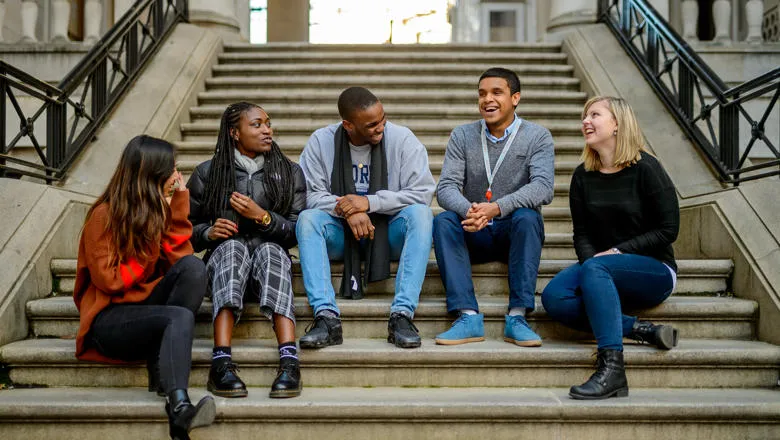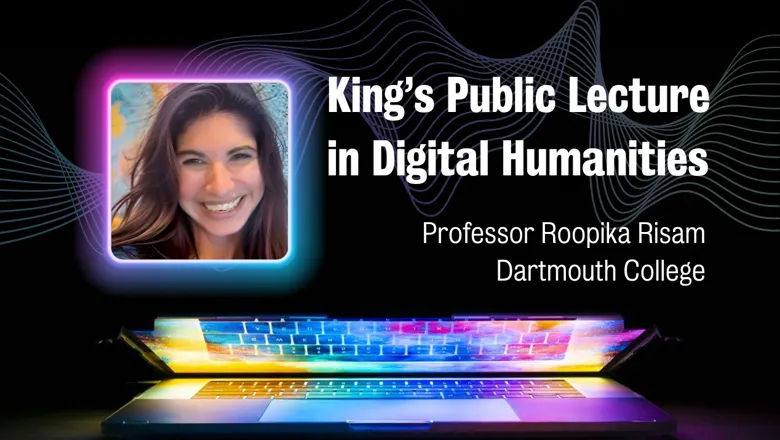
Professor Simon Tanner
Professor of Digital Cultural Heritage
Research interests
- Digital
Biography
Simon Tanner is a digital humanities scholar with a wide-ranging interest in cross-disciplinary thinking and collaborative approaches that reflect a fascination with interactions between memory institution collections (libraries, museum, archives, media and publishing) and the digital domain.
His Balanced Value Impact Model (BVIM) is used for culture, heritage and digital impact assessment all over the world. He created and hosts the Balanced Value Impact Model website.
Research into image use and sales in American art museums by Simon Tanner has had a significant effect on opening up collections access and OpenGLAM in the museum sector. Tanner is a strong advocate for open access, open research and the digital humanities. He is part of the founding group behind the ArtforAll campaign.
As an information professional, consultant, digitisation expert and academic, he works with major cultural institutions across the world to assist them in transforming their impact, collections and online presence. He has consulted for or managed over 500 digital projects, including digitisation of the Dead Sea Scrolls, and has built strategy with a wide range of organisations. These include many national libraries, museums and government agencies in Europe, Africa, America and the Middle East. Tanner has had work commissioned by UNESCO, the Arcadia Fund and the Andrew W. Mellon Foundation. He founded the Digital Futures Academy that ran in the UK, Australia, South Africa and Ghana with participants from over 40 countries.
Research Interests and PhD Supervision
Simon is a Professor of Digital Cultural Heritage in the Department of Digital Humanities with a particular research focus upon:
- Digital
- Impact assessment and measurement
- Cultural economics and value
- Museums, libraries and archives
His areas of research with the strongest international impact are, first, the economic realities and Open Access/Content strategies for digital content in cultural heritage and second, the Balanced Value Impact Model. He has also carried out extensive research in digitisation working with partners in Africa (e.g. Archbishop Desmond Tutu) or projects such as the Dead Sea Scrolls imaging.
He is interested in PhD supervision which engages with these research themes and have supervised research engaged with digitisation in Africa, democratization, Open Access/Content, digital divides and impact plus memory, museums and digital imaging.
For more details, please see Simon's research profile.
Teaching
Simon teaches mainly on the MA Digital Asset and Media Management course.
The MA in Digital Asset and Media Management was launched in 2010. Since then it has gained Chartered Institute of Library and Information Professionals Accreditation and has a strong international cohort of students attracting at least 90-100 students per year. This MA responds to the growing demand for professionals who are familiar with the emerging digital needs of the broadcast, publishing, media and cultural heritage industries. Understanding the dynamic digital media landscape is key to developing new strategies and methods for creating and using digital media assets and will allow those working in these content industries to leverage their content in creative and innovative ways in the future.
Expertise and Public Engagement
Simon has written for the Guardian on academic matters, as well as appearing on TV, radio and other media.
Simon is available to discuss issues of digitisation, value and economics in the digital domain, Open Access/Content, the digital divide and digital cultures.
He has an active blog which gains over 75,000 views per year.
From 2003 – 2011 Simon was an Independent Member of the Government appointed Legal Deposit Advisory Panel and Chair of its Web Archiving sub-committee that led to the enabling regulations for UK web archiving.
In 2025, Simon was the Executive Dean (Interim) for the Faculty of Arts & Humanities at King's.
Research

Offence
With growing interconnectedness, especially online, and with personal identities having more salience, the issue of offence has risen up the agenda.
Project status: Ongoing

The Leverhulme Centre for Research on Slavery in War
We’re investigating the slavery-war nexus using interdisciplinary methods to create innovative tools and warning systems to eliminate forced labour, modern slavery and human trafficking.
News
Vice-Chancellor joins UK–Indonesia talks to deepen higher education collaboration
Professor Shitij Kapur, Vice-Chancellor & President of King’s College London, met Indonesian President Prabowo Subianto alongside UK university leaders to...

Professor Mona Siddiqui joins the Department of Theology & Religious Studies
Professor Mona Siddiqui, OBE, joins King’s from the University of Edinburgh for the start of the 2025-26 academic year.

King's launches Doctoral School for Arts & Humanities
The new school is a major investment into the postgraduate research environment for the arts and humanities by King's.

Digital research led by Kings to forecast the emergence of slavery in war zones
Academics from the Department of Digital Humanities and King’s Digital Lab will spearhead digital research in the new Leverhulme Centre for Research on...

King's ranked top 20 in the world for Arts & Humanities
In the 2025 QS World Rankings by Subject, King's has ranked 17th in the world for Arts & Humanities, rising five places.

Events

Everything Is Awful, But Maybe We Can Change Things: Digital Humanities in Times of Crisis
King’s Public Lecture in Digital Humanities delivered by Professor Roopika Risam, Dartmouth College.
Please note: this event has passed.
Research

Offence
With growing interconnectedness, especially online, and with personal identities having more salience, the issue of offence has risen up the agenda.
Project status: Ongoing

The Leverhulme Centre for Research on Slavery in War
We’re investigating the slavery-war nexus using interdisciplinary methods to create innovative tools and warning systems to eliminate forced labour, modern slavery and human trafficking.
News
Vice-Chancellor joins UK–Indonesia talks to deepen higher education collaboration
Professor Shitij Kapur, Vice-Chancellor & President of King’s College London, met Indonesian President Prabowo Subianto alongside UK university leaders to...

Professor Mona Siddiqui joins the Department of Theology & Religious Studies
Professor Mona Siddiqui, OBE, joins King’s from the University of Edinburgh for the start of the 2025-26 academic year.

King's launches Doctoral School for Arts & Humanities
The new school is a major investment into the postgraduate research environment for the arts and humanities by King's.

Digital research led by Kings to forecast the emergence of slavery in war zones
Academics from the Department of Digital Humanities and King’s Digital Lab will spearhead digital research in the new Leverhulme Centre for Research on...

King's ranked top 20 in the world for Arts & Humanities
In the 2025 QS World Rankings by Subject, King's has ranked 17th in the world for Arts & Humanities, rising five places.

Events

Everything Is Awful, But Maybe We Can Change Things: Digital Humanities in Times of Crisis
King’s Public Lecture in Digital Humanities delivered by Professor Roopika Risam, Dartmouth College.
Please note: this event has passed.
